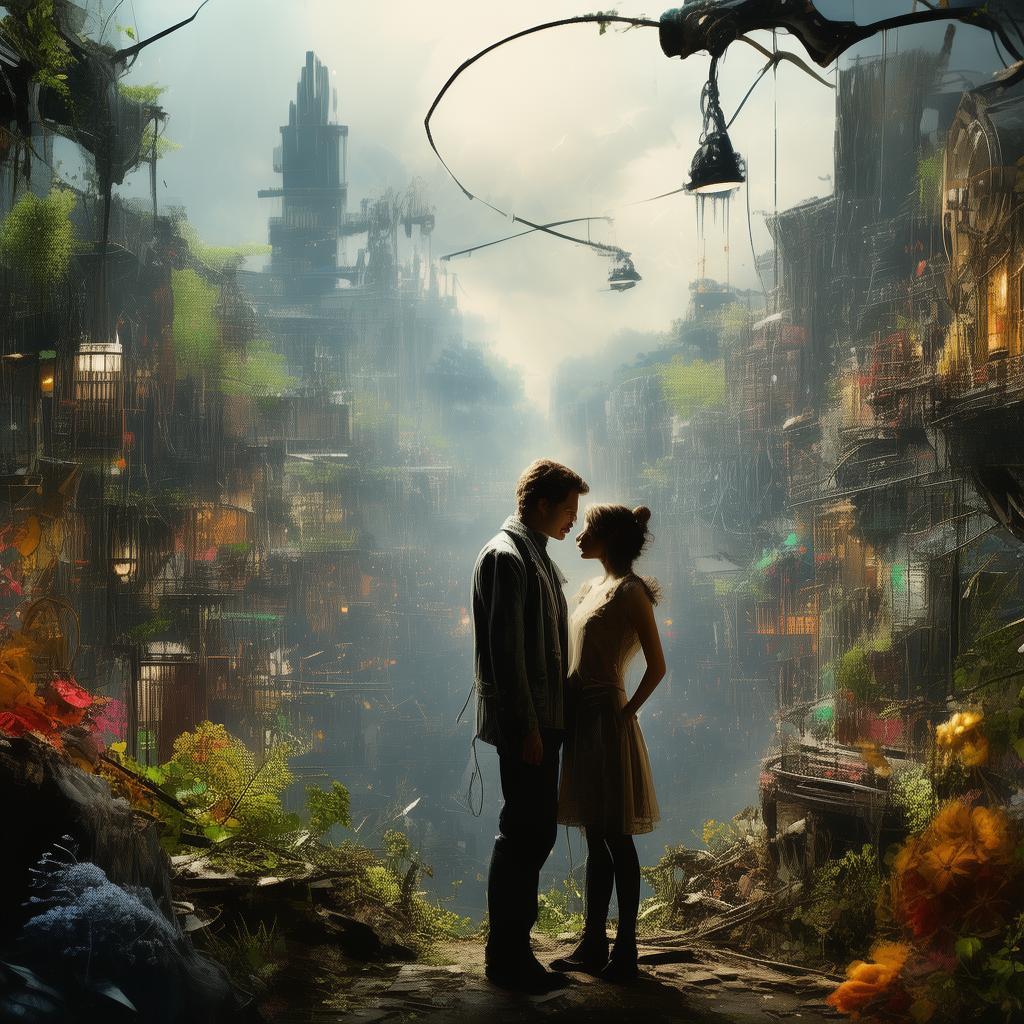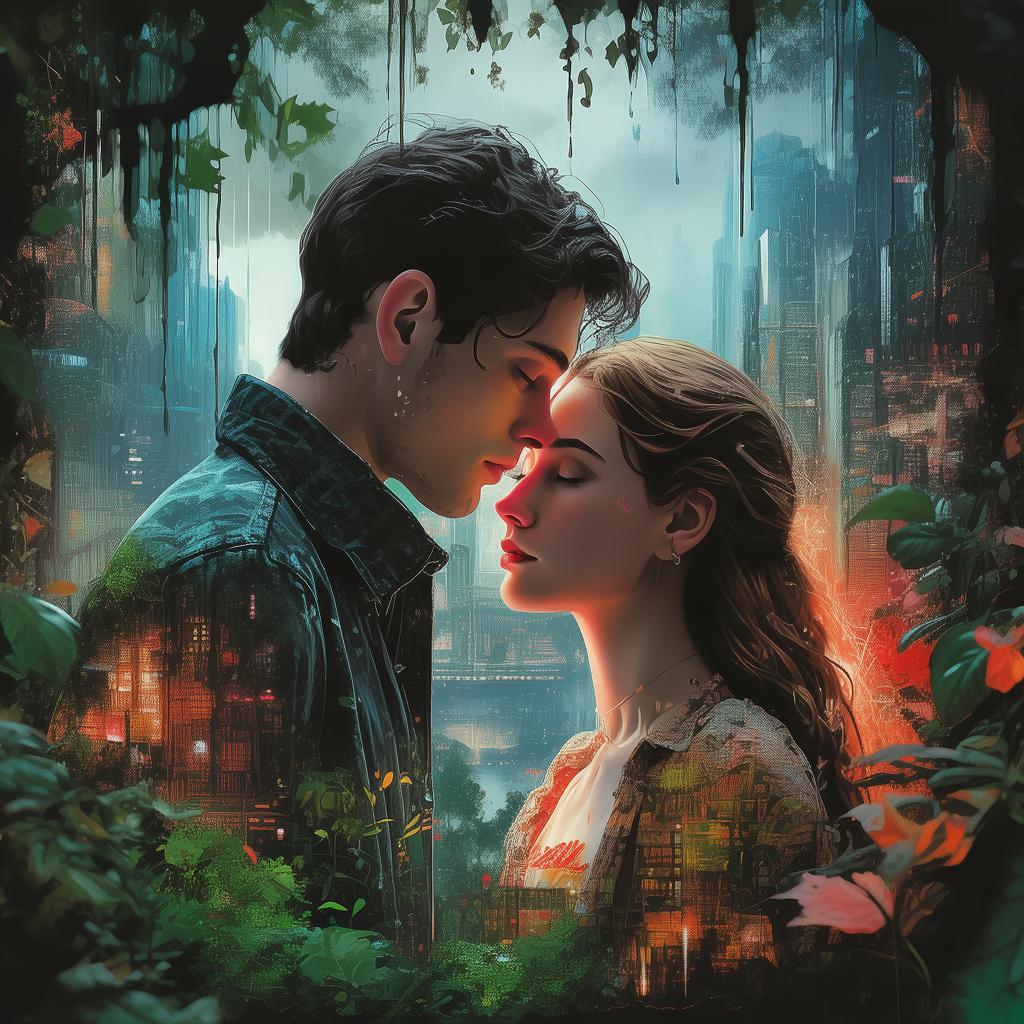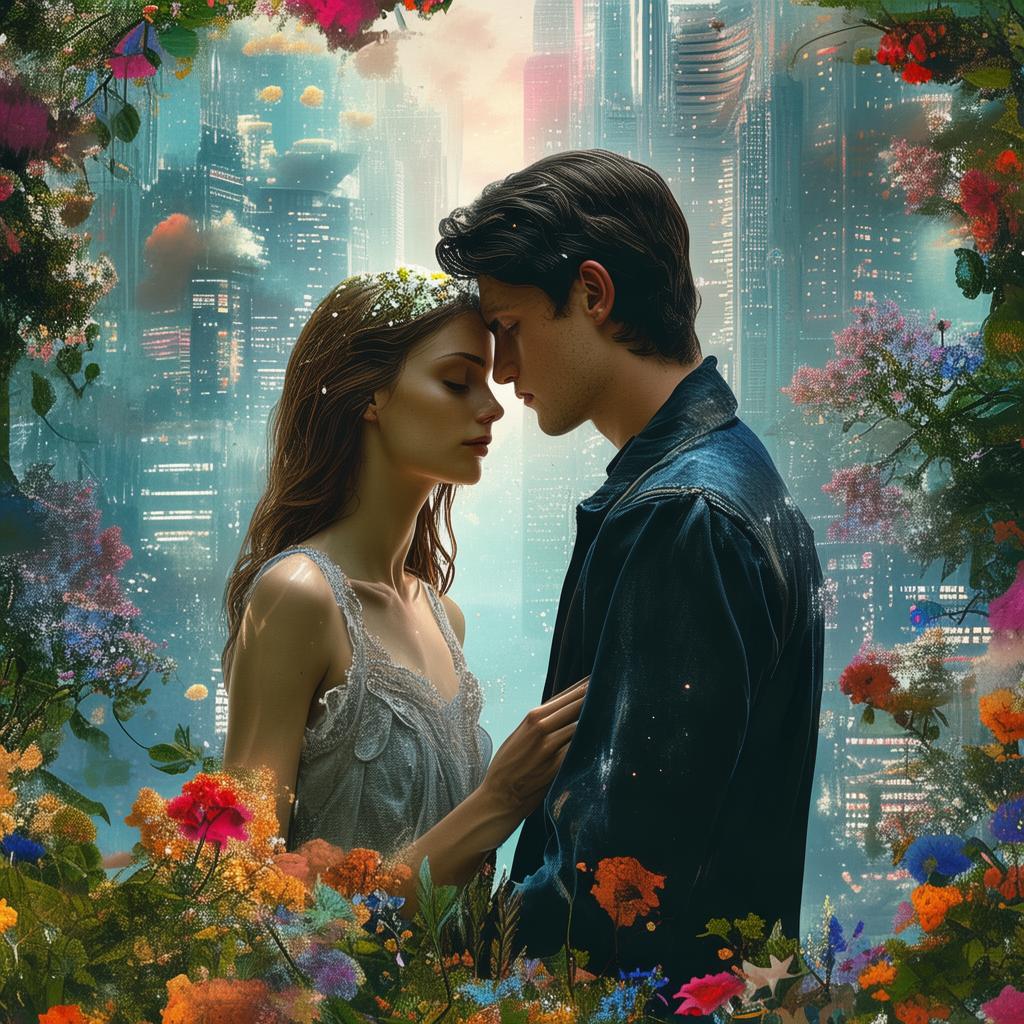Whispers of the Past: A Heart's Resonance
In the heart of Paris, where the cobblestone streets whispered tales of bygone eras, a young artist named Eliza found herself drawn to an old, dusty bookstore. The scent of aged paper and ink filled the air, a tangible reminder of the stories that lay within its walls. It was there, amidst a collection of forgotten tomes, that her eyes fell upon a peculiar volume bound in faded leather. The title, "Sketches of the Heart's Yearning," caught her attention, and with a flick of her wrist, she opened it to find the first page, yellowed with time.
The diary was written by a young woman named Isabella, who lived during the tumultuous days of the French Revolution. The entries were filled with vivid descriptions of the city, the love she shared with a mysterious man named Étienne, and the fear that gripped her at every turn. Eliza's heart raced as she read, her breath catching at the words that seemed to pulse with a life of their own.
"Étienne... Isabella... Whispers of the past," Eliza murmured to herself, feeling a strange kinship with the words. She knew little about her own family history, and the story of Isabella and Étienne felt like a forgotten piece of her own identity. Determined to uncover the mystery, Eliza began to sketch the scenes described in the diary, allowing the images to guide her through the labyrinthine streets of Paris.
As the days passed, Eliza found herself drawn deeper into the world of Isabella and Étienne. The diary revealed a love that was as fiery as it was forbidden, a love that would challenge the very fabric of society. Isabella, a woman of great beauty and talent, was betrothed to a wealthy, influential man, but her heart belonged to Étienne, a man of humble beginnings and a passion for the arts. Their love was a clandestine affair, fraught with danger and heartache.
One evening, as Eliza wandered through the streets of Paris, she stumbled upon a painting that seemed to capture the essence of Isabella's diary. The artist's signature was the same as the one she had seen in the bookstore. Intrigued, she tracked down the artist, a man named Lucien, and discovered that he was the great-grandson of Isabella. The revelation that Isabella's story was still alive, albeit in a different form, filled Eliza with a sense of purpose.
Lucien told Eliza of Isabella's final days, how she had been betrayed and left to die in a remote village. Étienne, heartbroken and desperate, had set out to find her, but it was too late. Eliza couldn't help but see her own reflection in Isabella's tragedy. She had her own love story, one that was as passionate and forbidden as Isabella's.
The more Eliza learned about Isabella and Étienne, the more she realized that the past was not so distant. The longing in Isabella's heart resonated with her own, and the diary became a guide to her own deepest desires. She found herself drawing inspiration from the love that had once burned so fiercely, and she began to create her own sketches, her own "Sketches of the Heart's Yearning."
Eliza's art began to take on a life of its own, the colors and lines telling the story of her own love. She met a man named Jacques, a man who seemed to understand her in a way that no one else ever had. They shared a connection that was as electric as it was unspoken, and Eliza knew that she had found something rare and precious.
As the days turned into weeks, Eliza and Jacques's relationship grew, their love as fervent as the love between Isabella and Étienne. But just as Isabella had faced her own betrayal, Eliza found herself in a similar situation. Jacques had a past that he was hiding, a past that threatened to tear them apart.
In a moment of crisis, Eliza turned to the diary of Isabella for strength. The words of the young woman who had once walked the same streets filled her with a sense of resolve. "We must believe in love," Isabella had written. And with that, Eliza faced Jacques's secrets, determined to uncover the truth and protect their love.

The climax of their story came in the form of a revelation that would change everything. Jacques confessed that he was, in fact, a descendant of Étienne, and that he had been searching for Isabella's descendants all his life. Eliza and Jacques's love was not just a contemporary affair; it was a continuation of the timeless love story of Isabella and Étienne.
In the end, Eliza and Jacques stood together, their hands intertwined, looking out over the same Parisian skyline that had once witnessed the passion of Isabella and Étienne. The past and the present merged into a single, beautiful moment, and Eliza knew that her heart's yearning had found its true home.
The diary of Isabella had not only revealed a love story from a bygone era but had also illuminated the path to Eliza's own heart. In the end, it was the whispers of the past that brought Eliza and Jacques together, and it was the strength of their love that would carry them into the future.
✨ Original Statement ✨
All articles published on this website (including but not limited to text, images, videos, and other content) are original or authorized for reposting and are protected by relevant laws. Without the explicit written permission of this website, no individual or organization may copy, modify, repost, or use the content for commercial purposes.
If you need to quote or cooperate, please contact this site for authorization. We reserve the right to pursue legal responsibility for any unauthorized use.
Hereby declared.









